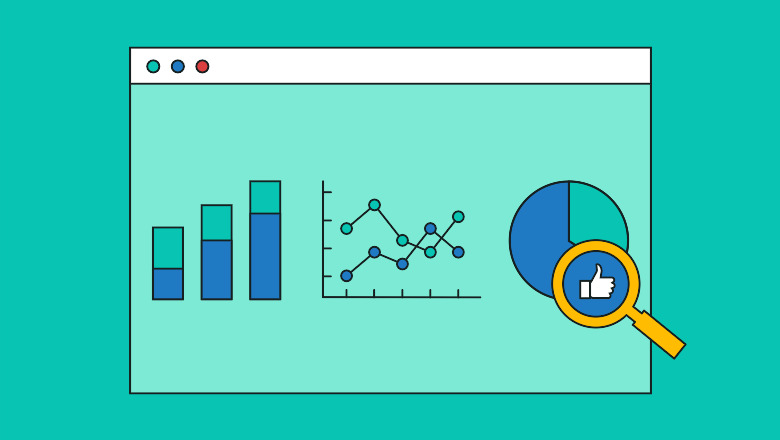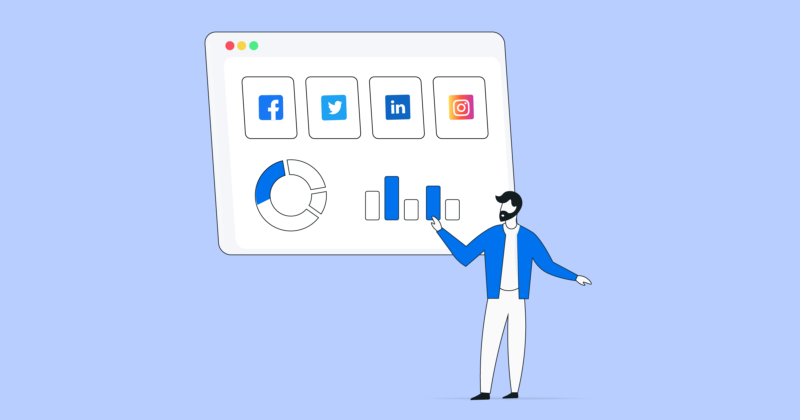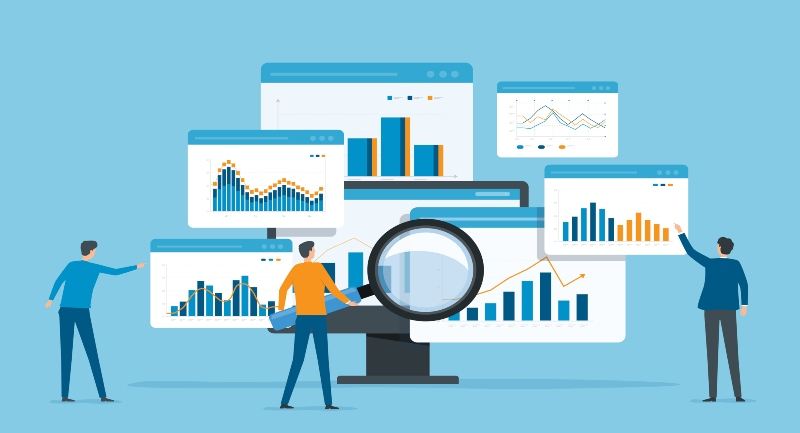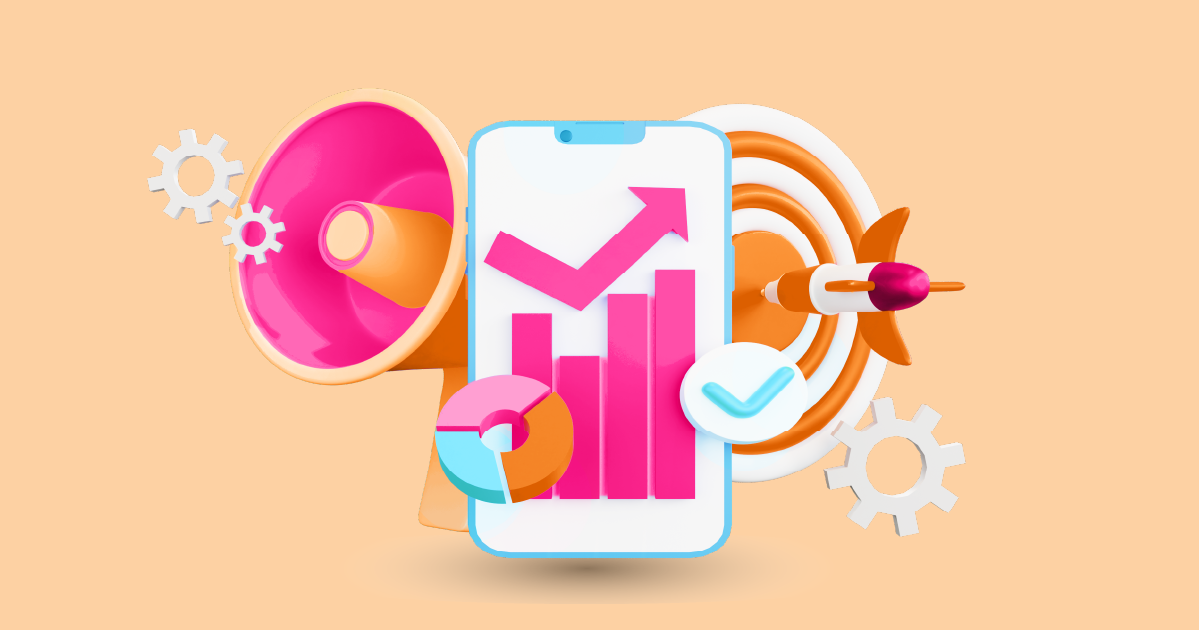Social media has become a fundamental aspect of our daily lives in this modern digital era. It’s a powerful tool that connects people from all over the world, and it has become an indispensable marketing tool for businesses. Social media platforms provide companies with a platform to promote their products and services, engage with their audience, and build brand loyalty. However, to be successful in social media marketing, it’s essential to track and analyze social media metrics. In this article, we’ll dive deep into social media analytics insights, the different metrics you should track, and how to use these insights to improve your social media marketing strategy.
Introduction To Social Media Analytics Insights

Social media analytics insights are the process of tracking, analyzing, and interpreting data from social media platforms to gain insights into user behavior, engagement, and other key metrics. Social media analytics enables businesses to measure the success of their social media marketing campaigns and identify areas for improvement. It provides valuable information that helps businesses understand their audience, their interests, and their behavior on social media.
Social Media Metrics To Track
To get the most out of social media analytics insights, it’s essential to track the right metrics. Here are some of the key social media metrics that businesses should track:
1. Engagement Metrics
Engagement metrics measure how users interact with your social media content. These metrics include likes, comments, shares, and retweets. Tracking engagement metrics helps businesses understand how well their content resonates with their audience.
2. Reach Metrics
Reach metrics measure the number of people who have seen your social media content. These metrics include impressions, reach, and views. Tracking reach metrics helps businesses understand the size of their audience and how effectively they are reaching them.
3. Conversion Metrics
Conversion metrics measure how many people take a desired action after seeing your social media content. These metrics include clicks, website visits, and sign-ups. Tracking conversion metrics helps businesses understand how well their social media content drives business outcomes.
4. Audience Growth Metric
The audience growth metric indicates increased audience numbers for your business and social media. Analyzing this growth based on the audience’s characteristics helps writers write better content based on the audience’s interest.
5. Customer Sentiment Metric
Customer sentiment analysis provides data about customer satisfaction with the business. It describes how positive and negative the audience felt about the brand and their opinions.
Social Media Analytics Tools

There are many tools available that businesses can use to track and analyze social media analytics insights. Here are some of the most popular social media analytics tools:
1. Google Analytics
Google Analytics is a free tool that enables businesses to track website traffic and user behavior. It’s an essential tool for tracking conversion metrics and understanding how social media drives website traffic.
2. Hootsuite
Hootsuite is a social media management tool that enables businesses to schedule social media content and track engagement metrics. It’s an all-in-one tool for managing social media accounts and tracking social media analytics.
3. AIM Insights
AIM Insights is a social media management tool that enables businesses to analyze social media content, track engagement metrics, and monitor social media mentions. It’s an all-in-one tool for managing social media accounts and tracking social media analytics.
4. Sprout Social
Sprout Social is a social media managing platform that provides reports about different metrics. With the ability to track the content’s effect on different audiences, and help to create better versions.
5. Brandwatch
Brandwatch provides real-time data and analyses for social media performance. Monitoring social media conversations and understanding public opinion.
Using Social Media Analytics Insights
Social media analytics insights provide businesses with valuable information that can be used to improve their social media marketing strategy. Here are some of the ways that businesses can use social media analytics insights:
1. Identify Popular Content
By tracking engagement metrics, businesses can identify which types of content resonate best with their audience. This information can be used to create more effective social media content.
2. Optimize Posting Schedule
By tracking reach metrics, businesses can identify the best times to post on social media to reach the largest possible audience. This information can be used to optimize posting schedules and increase reach.
3. Monitor Competitors
By tracking social media mentions, businesses can monitor their competitors’ social media activity. This information can be used to identify trends in the industry and improve their social media marketing strategy.
4. Audience Understanding and Targeting
By tracking the audience growth metric, and analyzing these audiences. You will be able to better understand their preferences, and be able to make better targeting plans.
5. Brand Awareness
By tracking the customer sentiment metric, and their opinions in your business. Your brand awareness will increase, as you build content based on the target customers’ opinions.
How To Create Social Media Analytics Report?
Challenges
Despite its many benefits, social media analytics also presents several challenges for businesses.
1. Data Privacy Concerns
With increasing concerns over data privacy, businesses must ensure that they are collecting and analyzing social media data ethically and in compliance with regulations such as GDPR and CCPA.
2. Ensuring Data Accuracy
Social media data can be vast and unstructured, making it challenging to ensure accuracy and reliability. Businesses must use reliable analytics tools and methodologies to collect and analyze data effectively.
3. Keeping Up with Trends and Algorithm Changes
Social media platforms are constantly evolving, with changes to algorithms, features, and user behaviors. Businesses must stay informed about these changes and adapt their analytics strategies accordingly to remain competitive.
4. Data Overload and Complexity
The huge amount of data that the business has, with its various platforms. It could be challenging to know the needed data between this amount. In addition to the number of metrics that the social media have and work on analyzing them.
5. Budget and Resource Constraints
The analysis tools fees could be challenging for some small businesses. With the increase in fees, by increasing the features that could be needed. In addition to the time concerns in providing the data and insights for the business.
Best Practices for Effective Social Media Analytics
To make the most of social media analytics, businesses should follow these best practices:
1. Setting Clear Objectives
Before diving into social media analytics, businesses should define clear objectives and goals for their analysis. Whether it’s increasing brand awareness, driving website traffic, or generating leads, having specific goals will guide their analytics efforts.
2. Choosing the Right Metrics
Not all social media metrics are created equal. Businesses should focus on metrics that align with their objectives and provide meaningful insights into their performance. This may include metrics such as reach, engagement rate, conversion rate, and return on investment (ROI).
3. Regular Monitoring and Analysis
Social media analytics is an ongoing process that requires regular monitoring and analysis. Businesses should continuously track their social media performance, identify trends and patterns, and make data-driven decisions to optimize their strategies over time.
4. Leverage the Right Tools
Choosing the right tool for the business to provide the right insights. It depends on the needs of the business and its performance on social media. And the platforms that the business is analyzing, to choose the right tool for the right platform.
5. Monitor Competitor Performance
Regular tracking of your competitors and their strategies. To be aware of any change in their performance and the effect of it. Also tracking their customers, their opinions, and what are the reasons behind their loyalty.
Future Trends
The future of social media analytics holds exciting possibilities, including:
1. Predictive Analytics
Predictive analytics will enable businesses to forecast future trends and outcomes based on historical data, helping them anticipate market changes and stay ahead of the competition.
2. Integration with AI and Machine Learning
The integration of artificial intelligence (AI) and machine learning will enhance the capabilities of social media analytics, allowing for more advanced data analysis, pattern recognition, and personalized insights.
3. Integration of Multichannel Data
With the use of different social media channels by the business, the multichannel data analysis will increase. As it will provide a wider overview of the performance, with the ability to compare in real time.
4. Visual and Video Content Analytics
The visual and video content will be easier to analyze, and provide more data about it. With the increase in using it, and its attractiveness for different types of audiences. It will include depth insights for analysis.
5. Influencer Marketing Analytics
The analysis of influencers and their effects on the business and audience will be smarter. As they are becoming more virtual, and more businesses are depending on them. Choosing the right influencer will become easier for the business with analytics insights.
Conclusion
Finally, we explored some of the ways that businesses can use social media analytics insights to improve their social media marketing strategy, including identifying popular content, optimizing posting schedules, and monitoring competitors.
Overall, social media analytics insights are an essential part of any successful social media marketing strategy. By leveraging these insights, businesses can stay ahead of the curve and drive meaningful results from their social media efforts.
Ready to start using social media analytics to improve your marketing strategy? Request a demo of AIM Technologies‘ social media analytics platform today and see how easy it is to track and analyze your social media metrics.
FAQs
How often should businesses analyze their social media performance?
- Businesses should ideally analyze their social media performance on a regular basis, such as weekly or monthly, to track trends and make informed decisions.
What are some common mistakes to avoid in social media analytics?
- Common mistakes include focusing on vanity metrics, neglecting to define clear objectives, and failing to interpret data accurately.
Can social media analytics help businesses identify emerging trends?
- Yes, social media analytics can help businesses identify emerging trends by monitoring conversations, hashtags, and user behaviors in real-time.
Are there any free tools available for social media analytics?
- Yes, there are several free tools available for social media analytics, such as Google Analytics, Facebook Insights, and Twitter Analytics.
How can businesses ensure the privacy and security of social media data?
- Businesses can ensure the privacy and security of social media data by implementing strict data governance policies, using secure analytics tools, and complying with relevant regulations.




